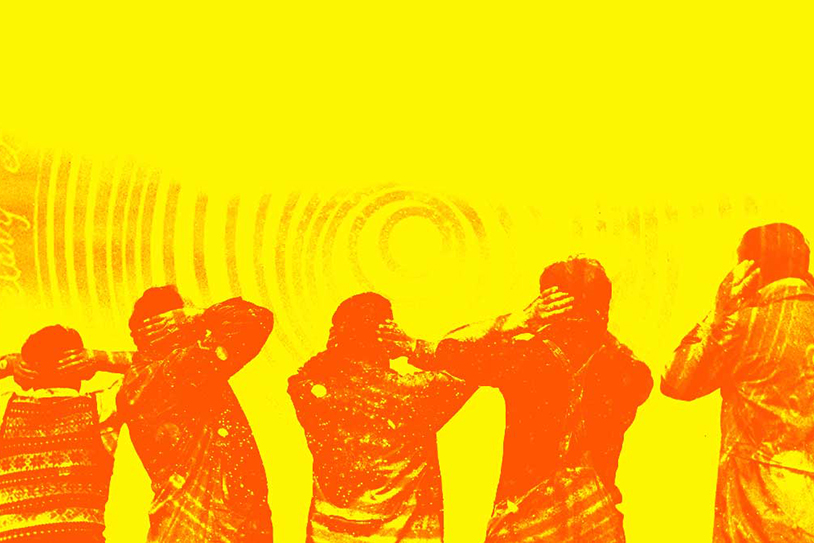
Please read Part 1 here. From leadership lessons to the strategy boardrooms and reflections on maintaining important relationships, listening well continues to be a multidimensional practice that has many aspects of requiring constant attention and steadfast improvement. Listening well signifies also maneuvering through nuanced ways of the meaning and implication of what people are conveying within organizations and relationships. People are taking cues at face value when they are able to listen well as we progress through the third year of this pandemic. The cost of poor listening is clear: there will be greater turnover within organizations and poorer outcomes in relationships when people are not cultivating the skill of listening well. Listening is a critical skill set for workplace and life success within relationships; yet, it is hardly an explicit instruction across universities and campuses. Only less than 11% of accredited business schools indicate listening as a critical skill; moreover, 78% of undergraduate business programs indicate that presenting is a more paramount learning goal for students in their midst.
Listening well is also an outflow of a greater analysis of your strengths, weaknesses, and personal habits. This can require direct coaching with ongoing and specialized instruction from someone that can provide you with research-backed counsel. Ultimately, being coached with listening skills will not mean that you automatically become a certified champion listener. Listening well requires intentional effort and active pursuit, and the rewards of demonstrating this skill set can dramatically improve the quality of relationships and strengthen the existent bond and sense of intimacy.
Once people feel that they are not being listened to, they end up ceasing to share information. Intimacy becomes hindered and relational barriers form. With the reboot of in-person work demands and working relationships, a new period of adjustment has been occurring across this transitional season. What used to be straightforward and a breeze can be more tricky to navigate and challenging to follow within an abrupt increase of social stimulation amid a need for greater social connectedness. As part of the fundamental repertoire of social skills, attunement is a critical aspect of listening well. This has been defined as “being in tune and in sync” with others, especially during complex and challenging interactions. Authors Brodkin and Pallathra cite this skill accordingly: “Attunement should not be viewed as simply fostering a touchy-feely emotional connection with others, but as a unique power — a power that enables us to perceive communications from others, to connect and have our message understood, and to manage conflict.” There are critical steps toward hearing, understanding, and ultimately connecting with others using this critical skill set of attunement. Strengthening our capacity for communication is especially important amid this pandemic; skills related to listening well can allow us to be stronger communicators and stay in sync with others.
Prepare your nervous system with grounding techniques
Feeling more grounded and centered within the moment has been considered a real gift within the digital age of distractions. Implement a meaningful pause, relax your shoulders, and tilt your head down with your chin. Sense a gentle lengthening and stretching of your neck. Notice your belly expand while you breathe in and relax your back as you breathe out. This will create a state of “relaxed awareness” in which you are able to call upon attentional faculties and feel more engaged amid conversations.
Listen to yourself – and to the other person
The most important dialogue is shared in the space between you and the other person in the conversation, and you can practice saying and expressing this reality on a regular basis during the dialogue. Periodically check in with yourself and be in tune with your physical sensations as well as thoughts and emotions throughout the dialogue. Preoccupation about the outcome of the conversation or weeding through internal distractions instead of maintaining clarity in the communication are all commonplace circumstances; yet, listening well to the other person and being attuned to yourself can lead to positive relational benefits and healthy social outcomes overall.

Pursue empathy
Empathic connection for developing relational intimacy is mission critical. When listening well to others has various barriers, consider what the other person’s perspective and lived experiences might be and attune your focus during the conversation. Maintaining self and other-focused compassion can allow for you to more effectively cultivate awareness of how to develop connection, and you can read more about empathy here.
Keep developing connection
More often than not, demonstrating active listening can help propel the dialogue forward by meeting others involved in the conversation both emotionally and physically. Initially keeping the conversational focus on the other person allows for greater connection with interest and openness to occur. Attend to the other person for a few minutes without getting sidetracked from digital distractions, other personal agenda items, and your own anxieties about the conversation.
Listening well for relational intimacy using attunement as a social connection tool will produce meaningful engagement, foster feelings of being heard, and inspire openness and responsiveness within the relational atmosphere. Small steps toward improving in attunement can be altogether meaningful in creating impactful change in relationships and foster relational intimacy.
Central to relational success, listening continues to be a foundational competence for skillful connection. Understanding the essence of what has been shared, knowing the intention of the communicated message, and demonstrating knowledge of it are paramount. It will take personal reflection, continuous feedback, and acknowledging that the other individual has been heard and understood will be key features of honest dialogue with meaningful connection.
Where people were socially in February 2020 might be a bit different than current-day experiences in 2022, and there have been many emotionally-searing dynamics that have occurred in this pandemic season. As people may have grown more distant and less noticing of one another’s rhythms, exploring the skill of attunement and returning to the basics of human connection is necessary for forward momentum into the new year.
“Once people feel that they are not being listened to, they end up ceasing to share information. Intimacy becomes hindered and relational barriers form.
By Deepak Santhiraj, Licensed Clinical Social Worker
Recent Posts
7 Signs of Burnout at Work
In today’s fast-paced work environment, burnout has become an increasingly common issue. It’s more than just having a rough week [...]
How Attachment Styles Affect Children Differently on Social Media
There are complex ways attachment styles, developed early in life, shape how children and adolescents interact with social media. [...]
Being Released from Overthinking – Part II
Please read Part I here. Today's work environment presents many with a constant barrage of potential anxieties. From deciphering [...]



